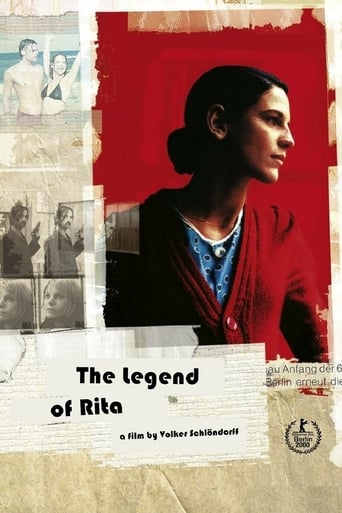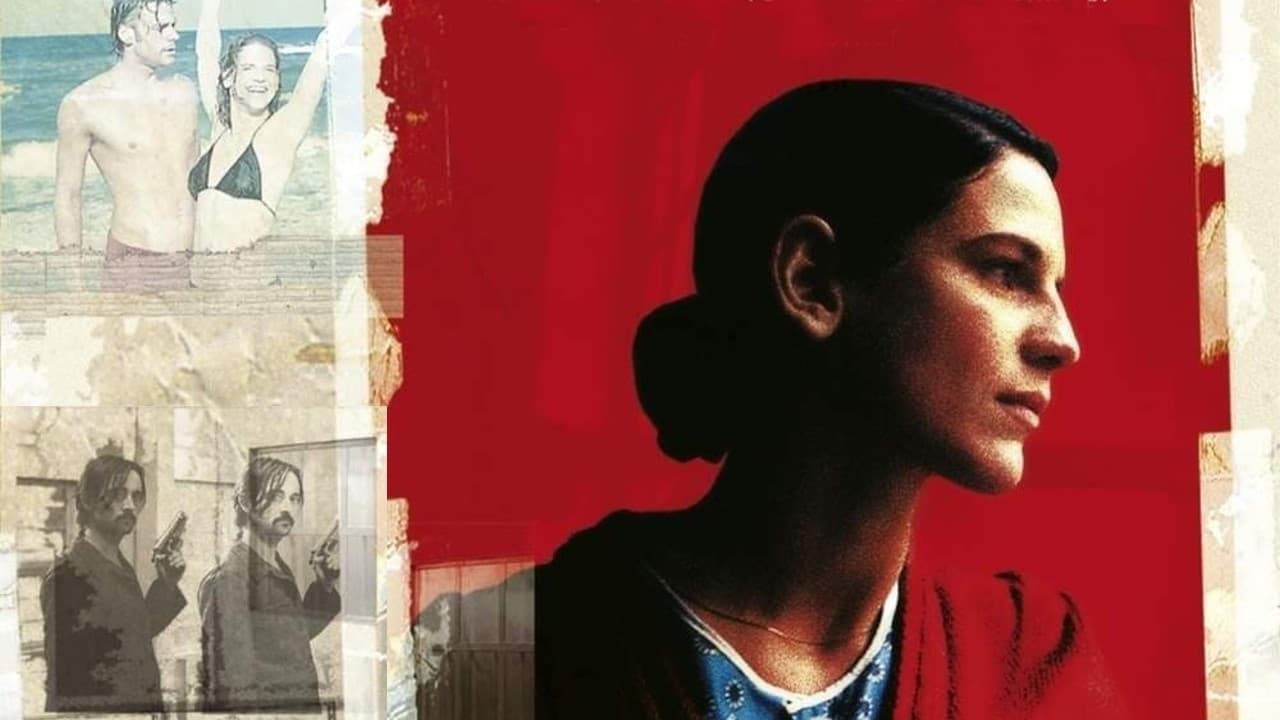swillsqueal
The Red Army Faction (RAF) was a self-described, communist, anti- imperialist urban guerrilla organisation based in the Federal Republic of Germany (West Germany). The RAF had a theoretically superficial Marxist-Leninist set of politics similar to those of Weatherman in the USA and the Red Army Faction in Japan. These were young people, many of them college students, who felt both a guilt about and sympathy for Third World nationalist revolutions; revolutions they believed, were the vanguard of a world revolution which would eventually sweep the 'fascist imperialist' States away.Che Guevara captured what Schlöndorff is attempting to portray in his film concerning the mental spirit of these German student, revolutionary romantics when he reflected on his own audacity and political commitment: "At the risk of seeming ridiculous, let me say that the true revolutionary is guided by a great feeling of love. It is impossible to think of a genuine revolutionary lacking this quality... We must strive every day so that this love of living humanity will be transformed into actual deeds, into acts that serve as examples, as a moving force." Action and audacity were the Red Army Faction's (RAF) strong suit. "The Legend of Rita" (original German title "Die Stille nach dem Schuß" ) is set in the divided Germany of the 70s. Rita is a young fearless romantic in love with a left-wing revolutionary, one Andreas 'Andi' Klein, a guy who is more or less the leader of an RAF group which she is a part of. Their RAF group is armed, ruthless and robs banks to fund 'the revolution'. These revolutionaries naively explain their robberies in terms of 'anti- imperialist' politics : Yes, out loud, to customers as they clean out the capitalist bank vault and cash drawers, with weapons drawn.Adrenal rush and surprise hit one in this film from start to finish. From jail breaks to motorcycle chases, to life behind the Iron Curtain, the film comes at you again and again with images you've been brainwashed to feel uncomfortable with. (Caution viewers: you may feel a violation of your Hollywoodised sensibilities.) You'll also feel the kind of careless courage these young people of the RAF had, as they consciously faced death, even as they reached out for a better life-- actually,a better life for others, mostly. As many, many of the New Left, Rita and her fellow RAF members are motivated to take violent political action in order to assuage a deeply felt guilt about being born in First World privilege. They are more moralists than materialists--romantic poets ready to use murder as a political weapon. In the midst of all this direct, violent action, some of them change, become more hard hearted, mechanically calculating. Rita's boyfriend is one of them and when this happens, love dies. Rita is a lover first and a revolutionary second. In her heart of hearts, she wants to settle down, have kids, a husband, the whole modern suburban dream, albeit in a more egalitarian, 'anti- imperialist' society. Rita wants mutual love more than anything else and as she learns more about the duplicitous mendacity of the coldly calculating political apparatus in both the East and West, she comes to the realisation that political States are always ready to opportunistically sacrifice their oft repeated, propagandised moral goals and callously toss human lives on the scrapheap for political gain. As a result, she grows closer to the only person who ever measured up to her romantic expectations, an East German woman named, Tatjana.Volker Schlöndorff has directed a master portrait of a political situation, a time and a place which is quickly disappearing down the 'memory hole'. Not only are the West German RAF, with their Ton Stein Scherben albums and sneering hatred for bourgeois complacency critically and sympathetically examined; but the 'actually existing socialism' of the DDR of that era is laid bare as well. East Germany is portrayed realistically, down to the last idiosyncrasy, from the near empty roads, to the Radeberger Pilsner, to the workers' apartments in those large, multi- storied college dorm-like buildings in urban East Berlin. This portrait will disturb long held mainstream 'Time' magazine inspired conceptions of East Germany, some would say, 'with extreme prejudice'. Rest assured, the film's honesty extends across both sides of the East/West border. Far from revolutionary or socialist, most of the citizens of the DDR are portrayed as being quite conservative, endorsing whichever police are in charge of the political State. The point is hammered home at the end of the movie, when the fall of the Wall in 1989 is portrayed; a time when Rita and her audience are supposed to come to the realisation of just what die Stille nach dem Schuß entails.
honeybearrecords
Okay, so I was really primed to love "The Legend of Rita". And, yes, no surprise, I love this movie. Here's why: First of all, it's an objective film about the European left in all its shapes and sizes. Rita is a member of a radical group of German urban guerrillas somewhat based on the Baader-Meinhoff gang and somewhat based on the Hash Rebels. She kills a police officer, but unlike Western mainstream cinema, we still sympathize with her and identify with her struggle. She is aided by the East German Stasi, who see as normal people doing a job they believe in, rather than as the Stalinistic secret police we're told to believe they were. We see East Berlin as a difficult place to live. But not as the colorless, endless ghetto with bread lines that books and films have also told us. It's an objective film.Second of all, it's a film where the main character is a woman driven by her ideological convictions AS WELL AS her loves and desires. If Hollywood made the film, unrequited love or some sort of sexual frustration would drive her. Her political convictions and dedication to leftist revolution are what give her strong character and is not her Achilles heel.The film follows Rita as a young member of a radical group in '70s Berlin. While traveling back from Lebanon, a series of events leads her to make friends with the Stasi who aid her and her companions throughout their misadventures. After killing a cop during a police chase, she creates a new identity and lives a normal life in the East.From there the film follows her life and the end of the Cold War (World War III). I know most of the world was celebrating Glasnost. But to me, it felt like such a huge failure. Now, I may be an anarchist and I may have the same problems many of you had with the Soviet Union. But the fall of communism still felt like defeat. And for revolutionaries around the world, including people like Rita many of whom were turned over to the invading right wing bureaucrats, it was a palpable defeat.
rosscinema
This is the type of film that I wish were made more often. Volker Schlondorff reminds us that he's still a terrific director and really has gone back to his roots with this film. Rita is presented as a terrorist. Then seems to have left the revolution for another life and hope her past doesn't catch up. Were not suppose to feel pity or hatred towards this woman. Just watch and experience a fascinating character that is presented and not judge her morals. Hollywood would have ruined this film by making Rita sympathetic. Bibiana Beglau plays Rita and she is absolutely magnificent. Strong, smart and opinionated. But she's also vulnerable so her character is very interesting to watch. Beglau has a real presence on film and the strength of her personality shows throughout this film. I cannot wait to see her again in another film. Schlondorff's film and its portrayal of Rita is unflinching. The last scene in the film comes suddenly and leave's a haunting image in our psyche. The song that plays as the film ends I found to be very affecting and helps create an indelible aura for the film. Very strong film by a great director and acted by a great talent in Beglau.
richard_longman
Rita's story is one of the most moving films I have seen in a great long while. It reveals some of the true story of terrorism through the life of one West Germany's notorious RAF terrorists.The world is at war with itself. We live in a loveless plutocracy of materialism. Once you have understood the spiritual bankruptcy of the paradigm you cease to exist in Western society as a citizen and are horrified everyday by the venality and corruption and callousness on each side.A select few decide to do something about it. Rita is one of a group of ten in West Germany. They do what they can as long as they can with GDR (East German) support. Rita finally loses the vocation and wishes for a normal life - as a working class person - in GDR. They give it to her.She is happy, but cannot escape her past. She loves twice as a civilian and loses everything on both occasions as a consequence of her former identity.The collapse of the wall ends any possibility of a conventional life for her. Unlike her fellow GDR citizens, Rita knew the consequences of reunification and the destruction it would wreak on East German communities and lives. Her speech to her jubilant co-workers a passionate and prophetic plea. But when Rita sees another former comrade arrested she must make a run for it.The final shot is tragic and beautiful of the collapse of a motorcyle on a rainstrewn country road.The image of Rita and her struggle for a better world will stay with me for a long, long time. Thank you to Wolfgang Kohlhaase and Volker Schlöndorff for telling honestly a story rarely told. With the events of September 2001, it may be a decade before anyone can make such a film on this subject.The images are beautiful, if relatively conventional. Much of the art house crowd to whom this movie plays in North America require more avant-garde techniques to satisfy their insatiable cravings for the recondite, difficult and impenetrable. Frankly the story is better told well in the conventional language of good cinematography. The fine closeups are particularly notable.Good performances all around, especially by Bibianne Beglau in the title role. Nadja Uhl is a revelation as Tatjana, a beautiful self-destructive alcoholic of uncertain sexuality but strong friendship. Jenny Schilly is excellent in the small role of Friederike, Rita's comrade in arms. Harald Schrott has a fantastic intensity as the lead revolutionary Andi. One of the key personalities in the film is their Stasi handler Erwinn. Sadly, most of the time Martin Wuttke's performance is too ironic by half. His Stasi sidekick is much better played by an actor whose name escapes me.


 AD
AD



